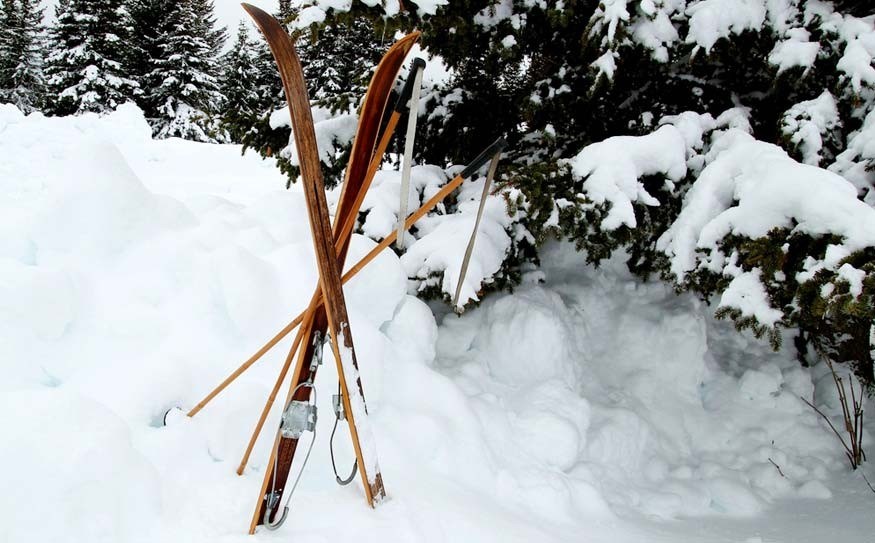I f you don't know where you came from you won't know where you're going."
I believe the great philosopher Bill Cosby said that in one of his comedy albums from the mid-70s, in a sketch about Fat Albert; there was probably a 'Hey, hey, hey...!' in front of it.
But I could be wrong; one could never accuse Fat Albert of being a heavyweight of self-reflection. The line is just one of those little but profound things I heard as a child that made me think and contributed to my love of the past. Children are all about the future and linking the future to bygone times was, to the 10-year-old me, pretty interesting. Don't worry, I liked M*A*S*H*, too.
History is the sum of human activities; it covers anything from the Romans throwing people to the lions to getting the colour of the 1960s ashtrays exactly right on Mad Men.
Most of all, history is about stories — that above everything else is what makes it special to me. By knowing the tale of another, you get to enter an experience you'd never have yourself. You can learn, maybe avoid mistakes, build on what's already there.
For the last two weeks I have been editing the latest version of Whistler historian Florence Petersen's definitive biography of the resort from the era before the lifts and the lattes. Having edited books in the past, I offered my proofing services to Sarah Drewery, who is overseeing the project at the Whistler Museum & Archives.
The book is based on interviews carried out by Petersen, the museum's founder, since she moved to the region in the 1950s.
I took this gig on for completely selfish reasons. Most of the time I know where to stick a comma and I'm a complete geek about writing style, and I thought it might be a fair swap for picking up some good stories that could come in handy as I go about my business as a local writer.
The manuscript was duly emailed by Sarah and I did my best; I found a few things that needed fixing, made suggestions, and I hope that helps. I swear, though, I got the best deal. The content was riotous.
Some amazing people built Whistler before it was Whistler; the book is about them, the pioneers, prospectors and pre-ski wilderness lovers who had realized by 1915 that they didn't want to be anywhere else.
Alta Lake was Whistler's second name. The initial settlement was called Summit Lake, in keeping with its elevated situation, but this being British Columbia, there was more than one Summit Lake and that screwed up mail delivery, so Alta Lake it was for the better part of 60 years. The resort's current name was confirmed by the newly formed municipality in 1975.
I'm not sure if crusty prospectors tell the best stories or make them, but there are some beautiful contenders in this book, including an explosive tale about one old salt who cleaned his manky overalls with aviation fuel.
Then there's the momentous occasion when skis and backcountry hiking first came to the valley. Teenager Pip Brock was a pioneer of both, which brought him into contact with delightfully grumpy prospector Harry Horstman, a man who dug tunnels into Sproat Mountain at 1,500 metres in his search for copper. Life was tough for Horstman, but became even more so when the youthful Pip and a buddy walked by in the summer of 1935.
"Gosh all dammit. This hiking is getting to be quite a fad. You're the second party this year!" the annoyed prospector said.
The Horstman Glacier, a favourite spot on Blackcomb for summer skiing and riding, was named after the Kansas native. So it is with considerable irony to learn that he called skis "planks" and "slitherin' boards" and claimed he was twice as fast on his snowshoes, which was probably true.
Everyday life and standout moments are captured in the book, from the foot-thick ice that formed when water pipes froze, to homemade skiing boats for use on the lake, schools that closed for lack of pupils, to a child with a burst appendix being transported by frightened parents down the new, rickety Highway 99 to a Vancouver hospital in the '60s.
And everyone likes food and drink, right? It will be an interesting day, well within the 100-Mile Diet, when Araxi starts serving Steller's Jay Pie. Apparently wolverine tastes "gamey", and there's a peach pie that sounds like it's just waiting to be reinvented in one of our resort's gleaming kitchens.
If the accumulated stories in this book reaffirm one thing, it is that it really does take a village. Community and its ups and downs is always something to cherish.
The book is due to come out later this year and will be available at the Whistler Museum on Main Street.
After you've finished your day powing your brains out or wishing you had been, when you're sipping your cocoa/beer/caffeinated beverage in front of the cozy fire, raise a glass to the people who came before and who made possible what you're doing now.




